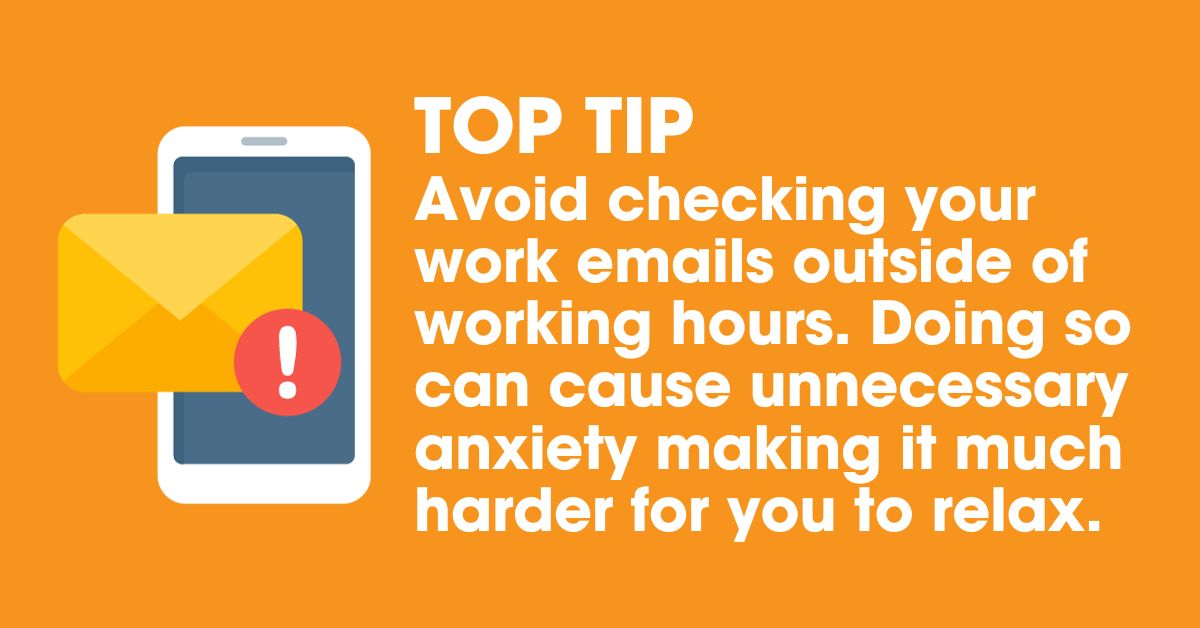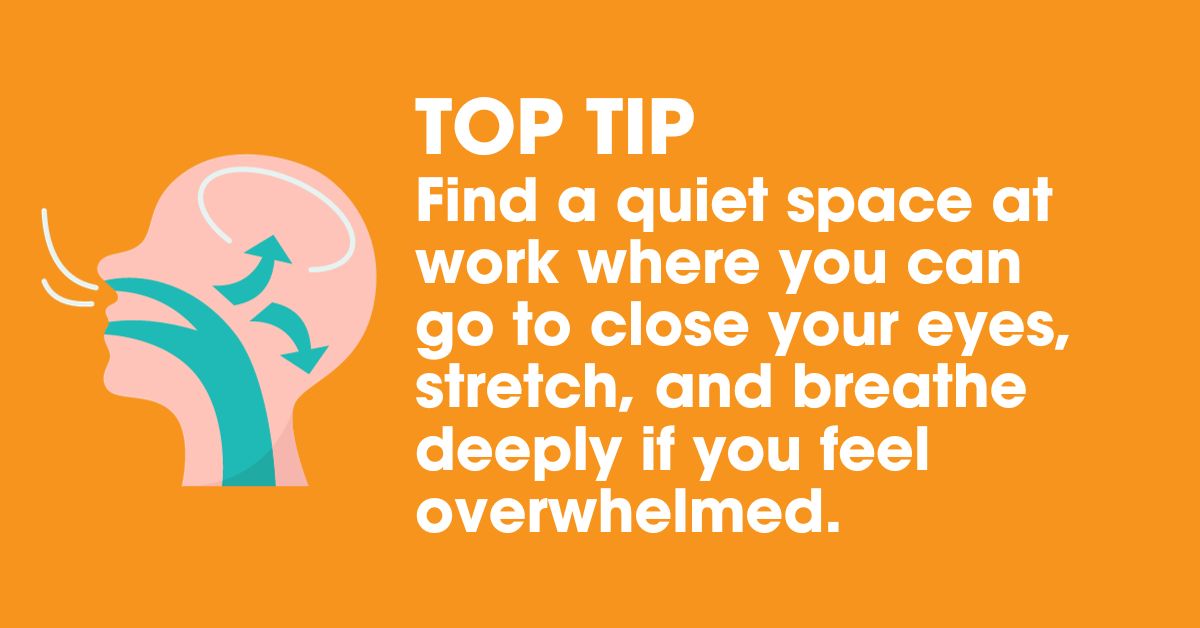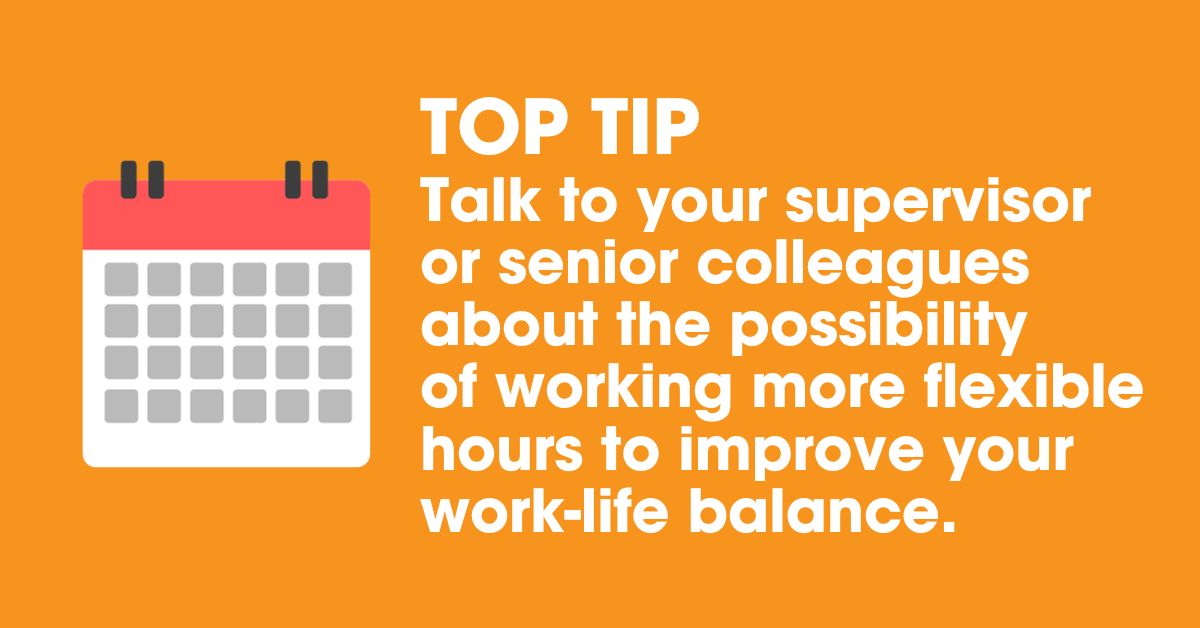Ten Ways for Scientists to Achieve a Better Work-Life Balance
Pursuing a career in life science is a challenge like no other, and one that can have a big impact on a busy scientist’s physical and mental health. With the pressured nature of research work comes the expectation to work long hours, publish papers, keep up with your peers and stay on top of the latest developments.
Maintaining a good work-life balance is crucial for scientists if they want to stay healthy, focussed, productive and happy. It’s all too easy to prioritise work over our personal needs, and when this sort of imbalance occurs it can lead to stress, depression or even total burnout.
We’ve put together a list of 10 small changes you can make to improve your work-life balance and start enjoying life more, both inside and outside the lab!
1. Set boundaries
It’s important to establish clear boundaries in the lab and ensure they are respected. The nature of science research means it can be tough to stick to set working hours, and this is especially difficult for PhD students who are famous for working overtime, night shifts, or even full weekends in order to keep their research schedules on track!
You’re passionate about what you do and as tempting as it can be to go that extra mile every day, it’s also important to consider what effect it might be having on your mental health.
2. Prioritise tasks
Learn to prioritise your tasks and focus on the most important ones. Be aware of any urgent deadlines for lab projects or paper submissions, and plan ahead to ensure you can reach those targets comfortably. Don’t be afraid to say no to new tasks or additional responsibilities if you think they will have a negative impact on other areas of your life. You can only do so much, and stretching yourself to your limits will cause your productivity levels to plummet.
If possible, delegate where you can by asking other lab members to share your workload. This will not only benefit you, but can be a positive boost to team morale and camaraderie.
3. Take regular breaks
As well as finishing work on time, it’s also important to take regular breaks throughout the day to allow your busy brain to have a little downtime! Even just a very short coffee break can be enough to recharge your body and your mind, which will ultimately improve your productivity for the rest of the day.
In this guest blog on Identifying & Dealing with Burnout in Academia, Dr Olya Vvedenskaya of Dragonfly Mental Health explains why simply switching tasks in the lab is not enough to give your brain a real break. She said: “Many scientists consider switching lab activities to be the same as a break, for example, if you need a break from writing you might move over to bench work for a while. This is not a ‘proper’ break as your mind will still be in ‘work mode’ and won’t have the time it really needs to rest and recharge.”
4. Explore time management techniques
To ensure you can make time for those all-important breaks, consider trying a variety of time management techniques to help keep your work on track. Managing your time effectively will help you stick to your set working hours, making you feel much more productive and ensuring you finish work on time.
Use to-do lists to organise your workload effectively, or try ‘time blocking’ to set chunks of time aside for specific tasks. You might consider exploring ideas such as the ‘Pomodoro Technique’ which involves working in focused 25-minute intervals separated by short 5-minute breaks. Read more about it here. There are also a number of time management apps available such as Trello which you can use as an individual or as a team to track the progress of your project work.
5. Exercise regularly and practice mindfulness
You may be on your feet all day at the lab bench, but nothing boosts your physical and mental health more than a regular exercise routine. Look for ways to incorporate a little more movement into your day, such as walking or cycling part or all of your way to work, or taking the stairs instead of the elevator when you arrive. Use one of your breaks to take a short walk around the grounds of your building. You’ll find the fresh air and physical movement will enhance your mental clarity and help to reduce stress levels that might be building up throughout the day.
Consider practising mindfulness techniques both inside and outside of the lab. Look into some simple deep breathing exercises that you can do at work, or consider meditation or yoga as an additional way to reduce anxiety and improve your overall well being.
6. Make time for hobbies
The fast pace of science research and the potential for discovery can dominate your thoughts, but it’s important to have other interests and hobbies that give your brain a break from work. In the same way that you allocate time to certain tasks in the lab, try to make space in your free time to dedicate to activities or hobbies that bring you joy.
Having something different to focus on will provide a sense of fulfilment and will lead to a more balanced lifestyle. Hobbies with a creative or problem-solving element can be particularly beneficial to scientists, as greater levels of creative thinking can lead to innovative approaches and ideas within research.
7. Get a good night’s sleep
Something that is overlooked by many is the importance of a good night’s sleep to our physical and mental health. If you’re regularly pulling late nights in the lab you’ll be damaging your long-term ability to recharge your body and refresh your mind. This can lead to exhaustion and eventually complete burnout. An adult should be aiming for 7-9 hours of good quality sleep each night, and the benefits to our brain include the following:
- Enhanced cognitive function
- Strengthening of neural connections
- Better emotional regulation
- Improved learning function
- Enhanced problem-solving
- Mood regulation & increased positivity
- Brain growth, development & repair
8. Recognise the importance of social time
Quality social time is also crucial for a healthy and balanced lifestyle. When you have evenings, weekends or full vacations away from the lab, dedicate time to spend with good friends or family who can provide not only laughter and happiness, but emotional support where needed. One of the early signs of burnout is a withdrawal from social activities and a move towards isolation. Fixating on work commitments and sacrificing social time can lead to depression in the long-term.
In this guest blog by Bregje Christiaenssen of the University of Antwerp, she discusses the importance of good social relationships, and having someone to talk to both inside and outside of the lab. She said: “No matter how hectic your lab life and schedule might be, never lose sight of the people who want the best for you, and always make your personal relationships a priority. Try to identify the work colleagues (either direct lab-mates or just other folks around you) that you can get some ‘detach time’ with when you’re in the lab. It may only take a ten-minute chat with someone slightly removed from your direct lab environment to motivate you again.”
9. Work remotely
If you’re really starting to feel overwhelmed by your work environment, consider whether it might be possible to work remotely on occasion. Of course when it comes to practical lab work and hands-on experiments, it’s unlikely you’ll be able to do these effectively from home. However, if your role involves a lot of literature review, grant writing, data analysis, or preparing materials for teaching, it might be that you could work from home occasionally. Even just one day per fortnight could be enough to give you a physical and mental break from the stress of the lab environment, and help you to achieve a happier work-life balance.
10. Ask for help
If your work-life imbalance means you’re no longer enjoying what you do, talk to your peers, mentors or supervisors to tell them how you feel. Discuss your concerns about your workload and see if there are ways they can help to ease the load. Share any mental health concerns and be as honest as you can. Open communication can lead to solutions such as the redistribution of lab tasks, adjustment of deadlines, or the provision of additional resources to help support you and your work. Don’t suffer in silence!
More advice on wellbeing in the workplace
If you’d like to read more about mental health and wellbeing for life scientists, take a look at some of these other great resources on the Hello Bio blog:
- The Life Scientists’ Guide to Wellbeing - advice from experienced scientists
- Work Hard, Play Hard: Finding a Healthy Balance as a Scientist - guest blog by Bregje Christiaenssen
- Identifying & Dealing with Burnout in Academia - guest blog by Dr Olya Vvedenskaya of Dragonfly Mental Health
- Workplace Wellbeing for Life Scientists - guest blog by Rachelle Balez & Heema Vyas
- How To Manage The Expected Pace Of Work In Scientific Research - guest blog by Dr Kate O’Neill
- Mental Health & Wellbeing for Scientists: Support Pack - collection of resources
_________________________________________________
If you enjoyed this article, why not check out the other resources available on our blog. We are passionate about supporting life scientists including early career life scientists and PhD students - with really low-priced reagents, antibodies and biochemicals, early career scientist grants, and resources to help with both personal and professional development. We know how tough it is - so we hope you find these helpful!
More General Support for Life Scientists
For advice on wellbeing, dissertations, presenting at conferences, wellbeing, PhD support, networking and lots more, we have a huge range of articles to help - just click below:
Save up to 50% on our high purity reagents...
When you get to the stage of planning your experiments, don't forget that we offer a range of low-cost, high-purity agonists, antagonists, inhibitors, activators, antibodies and fluorescent tools (yes - they really are around half the price of other suppliers!) You can use our Quick Multi-Search Tool to search for lots of products in one go, and the range includes:
- Enzyme inhibitors and activators
- Chemogenetic ligands
- Ion channel modulators
- GPCR & ionotropic receptor ligands
- Cell biology reagents & biochemicals
Technical resources
Try our Molarity Calculator: a quick and easy way to calculate the mass, volume or concentration required for making a solution.
Try our Dilution Calculator: an easy way to work out how to dilute stock solutions of known concentrations
We also offer a comprehensive range of technical resources including antibody protocols and methods, product guides and mini-reviews:
And finally, don't forget to check back in with our blog regularly for our latest articles. If there’s something you’d love to contribute to the community, whether that’s an interview or article, drop us a line at hello@hellobio.com
---























